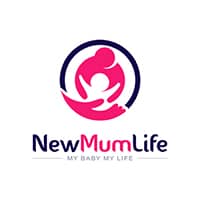Breast Milk is a magic potion for a newborn as it is the ultimate source of complete nutrition that enhances immunity and promotes growth. On the other hand, breastfeeding helps the mother to keep certain critical diseases like breast cancer, type 2 diabetes, ovarian cancer, anxiety, depression, and high blood pressure at bay. Breast milk is recommended to be the sole source of food for babies for the first five to six months and at this critical juncture, even water is not to be given to babies as mother's milk is more than sufficient. Thereafter, semi-solids and solids have to be given along with breast milk upto 12 months of age.
But during the various phases in the lactation period, a mother faces the challenge of low milk supply due to lack of sleep, stress, hormonal imbalance, dehydration, improper diet, and illness. In such cases, the parents may have to resort to formula feed as a supplement. This is indeed a stressful time but a mother starts to look for genuine and natural ways on how to increase breast milk.
The aim of this article is to dwell upon the tips to increase breast milk so that new mothers can keep up with ample supply on a daily basis for their growing baby. Also, we will be looking at the benefits of breast milk and some of the most common questions and answers on how to increase breast milk naturally at home. Just relax and keep on reading ahead to know the solutions for all your queries and doubts. So, without further ado, let's begin and dive deep into the beautiful world of feeding breast milk.
Benefits of Breast Milk
There is immense importance of breast milk for babies because it nourishes, protects, and soothes. The WHO(World Health Organization) recommends exclusive breastfeeding for the first six months in a baby's life. In such a scenario, it is significantly important to understand the real benefits of breast milk. Let's check each of these points:
- Breast milk reduces the probability of Type 1 diabetes, ear infections, illnesses, SIDS, asthma, and other diseases in breastfed babies.
- Antibodies are passed on from the mother to the baby during breastfeeding that builds the immunity to fight against infections.
- The breastfeeding mother lowers her chances of getting certain diseases and infections to a great extent.
- The breastfeeding mother lowers her chances of getting certain diseases and infections to a great extent.
- Breast milk makes the baby full and is way more beneficial and nutritious than formula milk.
Tips to Increase Breast Milk
You would be glad to know that consumption of certain foods can help in boosting the supply naturally without any side effects and are conveniently available in your kitchen. Let's look at all the items and tips one by one:
1. Fenugreek seeds:
Boil one spoon of fenugreek seeds soaked overnight with one glass of water. Strain, cool, and drink the concoction every day.
2. Cumin seeds and cardamom:
Take one heaped spoonful of cumin seeds, 2-3 cardamom, and boil them in 3 cups of water. Strain, cool, and drink it every night before bed time.
3. Fennel seeds:
Add one spoon of fennel seeds to 2 cups of water and bring it to a boil. Now cover the lid, let the drink to cool down, and then sip it slowly. Follow it twice a day for atleast a month.
4. Cinnamon:
Enjoy a cup of lukewarm milk coupled with a pinch of cinnamon powder and honey, every night before sleeping.
5. Garlic:
Garlic has wonderful health benefits and helps to boost up the supply as well. Try to add garlic to your meals including vegetables and lentils or simply chew one garlic clove in the morning.
6. Moong and masoor daal:
Cook the healthy and delicious yellow and orange daal along with ghee and rock salt for best results and increase in the milk supply.
7. Vegetables:
Consuming a variety of vegetables like carrots, beetroot, and bottle gourd assists in pumping up the supply.
8. Drumsticks:
Drinking the fresh juice of drumsticks for a month can significantly enhance the milk supply.
9. Dry fruits:
Cashews, raisins, pistachios, walnuts, and overnight soaked almonds, when taken in the morning provides healthy fats and antioxidants.
10. Flax seeds and sesame seeds:
Flax seeds are loaded with Omega 3 fatty acids and sesame seeds with calcium. Consuming them would be beneficial for health and milk supply.
11. Oats:
Oats are a rich source of fiber, vitamins and minerals. They also elevate the mood and prevent anxiety and depression postpartum.
12. Papaya:
Consuming papaya enhances the oxytocin levels in the body, thereby increasing the supply of milk.
13. Dill leaves:
They are a rich source of Vitamin A, C, K, and fibre. When consumed regularly, they help to aid digestion and replenish the milk supply.
14. Ghee and butter:
Both these sources of fat have to be a part of the postnatal diet to provide nutrition and strength to the recovering mother.
15. Water:
Breast milk is mainly made of water. So consuming water throughout the day, especially before and after breastfeeding or pumping is essential.
16. Shatavari:
This is an ayurvedic supplement easily available in the supermarkets in the form of powder and tablets. It can be conveniently taken with water and it pumps up the milk supply to a great extent without any side effects.
17. Ginger:
Ginger can be easily consumed by adding it to the food or boiling it while preparing a beverage like tea. It actually helps to enhance the milk supply when taken regularly.
18. Star Anise:
This spice is loaded with the goodness of Anethole that mimics the activity of the estrogen hormone and boosts the production of milk in lactating mothers.
19. Relax and rest:
One of the most important factor that leads to a decrease in milk production is lack of proper rest and relaxation to the mother. The family members should ensure that a new mother gets sufficient rest and is not stressed.
20. Healthy and balanced diet:
A new mother should maintain a healthy and balanced diet, especially just after delivery, so that a proper and sufficient supply of milk can be ensured.
While following the above tips, it is also imperative to keep pumping using a breast pump regularly in case breastfeeding is not feasible.
FAQs
Let's look at some of the most common questions revolving around on how to increase breast milk:
Q. What things can be avoided that lead to low supply of breast milk?
A. Generally, low breast milk supply can be attributed to not breastfeeding post delivery within a reasonable time, breast surgery, supplementing with formula feed, incorrect latching, premature delivery, certain medications, and not feeding or pumping often enough.
Q. Does alcohol and smoking impact milk supply?
A. Yes, drinking regularly or too much alcohol and smoking can significantly decrease the milk supply.
Q. How to know that the milk supply is low?
A. Some of the most common signs that indicate a low milk supply are lack of sufficient wet diapers, low levels of pumped milk, the baby is not gaining proper weight, and facing dehydration problems.
Q. Does lack of sleep and rest cause low milk supply?
A. Yes, it is imperative to take care of your sleeping pattern and sufficient rest for proper milk supply. It is a fact, that a new mother does not get proper rest in the initial months post delivery, but postpartum care and rest are essential.
Q. Can pumping or hand expressing help to boost up the supply of milk overtime?
A. Pumping the milk using manual or electric pumps or hand expressing after each nursing session can be a great way to enhance the milk supply as they stimulate the breasts to produce more milk overtime.
Q. What are the medical reasons for lack of milk supply?
A. If a mother is suffering from certain medical issues like hypothyroidism, diabetes, high blood pressure, obesity, or postpartum depression, then it is likely to negatively impact the breast milk supply.
Q. How can a lactation expert help in improving the breast milk supply?
A. Sometimes the milk supply is sufficient but due to a lack of understanding of the correct postures and techniques of breastfeeding, a new mother may face the issue of lack of supply overtime. So, a lactation expert helps to guide on the right ways to improve latching and breastfeeding.
Q. Apart from food, what are the most beneficial tips to increase breast milk?
A. Feeding the baby as early as possible after delivery, stimulating the breasts before feeding, correct latching, feeding from both the breasts in a single sitting, feeding 8-12 times in a day post delivery, giving pacifier only on need basis, cautiously taking medications, consulting a lactation expert, and pumping in case breastfeeding is not possible are advantageous for boosting the supply.
Final Words
Every mother wants to see her baby growing and thriving. A sufficient supply of breast milk ensures just that and takes care of all the nutritional and developmental requirements. But due to the reasons mentioned in this article, a mother can face issues regarding the low milk supply at any given time. In such circumstances, a mother tries her level best to get back the supply as soon as possible through dietary, supplemental, and stimulating techniques. With continuous efforts, the appropriate supply of breast milk can be achieved within a reasonable time.
We hope that these noteworthy tips on how to increase breast milk naturally at home prove to be effective for the new and lactating mothers. One thing to remember is that however low is the supply, the mother should never lose hope and keep on trying. And within some time, you will notice that your baby is gaining weight and produces optimum wet diapers which indicate towards sufficient breast milk. Do let us know in the comments down below the tips that you found to be the most effective and what worked for you in your feeding journey.
About The Author

NewMumLife Team
NewMumLife is a parenting website for moms, dads and child care. We aim to offer a place to connect parents and parents-to-be for all types of parenting advice and suggestions to the questions they normally face. Our content is for the parents and by the parents where they share their personal experiences to benefit our parenting community.

